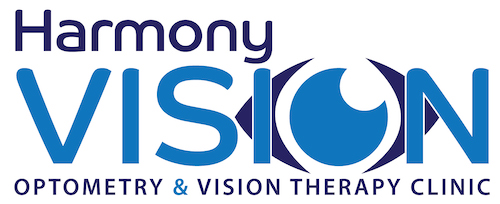Behavioural Optometry Q&A
Q What is Behavioural Optometry?
A. Behavioural Optometry is practiced by qualified optometrists, who have an interest in how the eyes work in conjunction with the whole body ie how visual behaviour interacts with everything we do.
Children’s Vision – Chat to Your Teacher
 The importance of talking with teachers to identify vision issues
The importance of talking with teachers to identify vision issues
A child’s ability to learn is intimately related to their vision. At school, 80% percent of what your child will learn is obtained visually. Think about it, most of their learning happens in front of a whiteboard, computer or book. How the brain and eyes work together has a tremendous impact on the learning process.
Why is vision so essential to learning?
In school, your child will be using a wide range of visual skills including:
Alice Forsyth Optometrist at Harmony Vision
 Introducing Alice Forsyth
Introducing Alice Forsyth
At Harmony Vision Care we are fortunate to have a team of leading optometrists who are passionate about helping our clients realise their best performance through better vision. One such member is Alice Forsyth, a behavioural optometrist who studied Optometry at UNSW and joined the Harmony Vision Care team in 2014.
In April, Alice traveled to Sydney to attend the 8th International Congress in Behavioural Optometry, along with the rest of the Harmony Vision team. Staying up to date with research and clinical practice is important to Alice, so when not cooking, spending time with her family or enjoying music, Alice enjoys reading and pursuing knowledge. To this end, she is currently studying for her Fellowship, which is a long road, and lots of hours of study!
We recently sat down with Alice for a quick question and answer session to find out why she’s so passionate about behavioural optometry and to help you get to know her a little better.
What inspired you to become a behavioural optometrist?
I was initially drawn into behavioural optometry to find more ways to help my son with his reading. Though I quickly came to appreciate the bigger picture that is vision. Over two million neurons connect the eyes to many areas of the brain (up to 60%), including input to regions that control touch, movement, attention and spatial judgment.
As optometrists, we like to pull things apart to discover how they work, but once we have that understanding we need to link the parts back together again, and there’s always a bigger picture.
What is the most rewarding part of your job?
Vision, Balance, Vertigo and Dizziness
Multidisciplinary Approach – Working Together
We heard from audiometrists, physiotherapists and optometrists who work to together to help people suffering from dizziness and vertigo symptoms. Often they are working with people who have suffered some sort injury like whiplash or a brain injury that has left them with balance difficulties, vertigo and dizziness symptoms. For some people these symptoms can be quite debilitating resulting in a greatly reduced quality of life from injuries that can sometimes initially seem quite mild.
Fortunately there is a growing interest in rehabilitation. Due to the complex integration of information from the inner ear, body movement/posture and vision, there often needs to be a collaborative approach to assisting these patients.
What is the Role of the Optometrist, and How Does Vision Fit In?
Can’t See 3D?
 Why the 3D experience can be a little “flat” or uncomfortable for some people…
Why the 3D experience can be a little “flat” or uncomfortable for some people…

